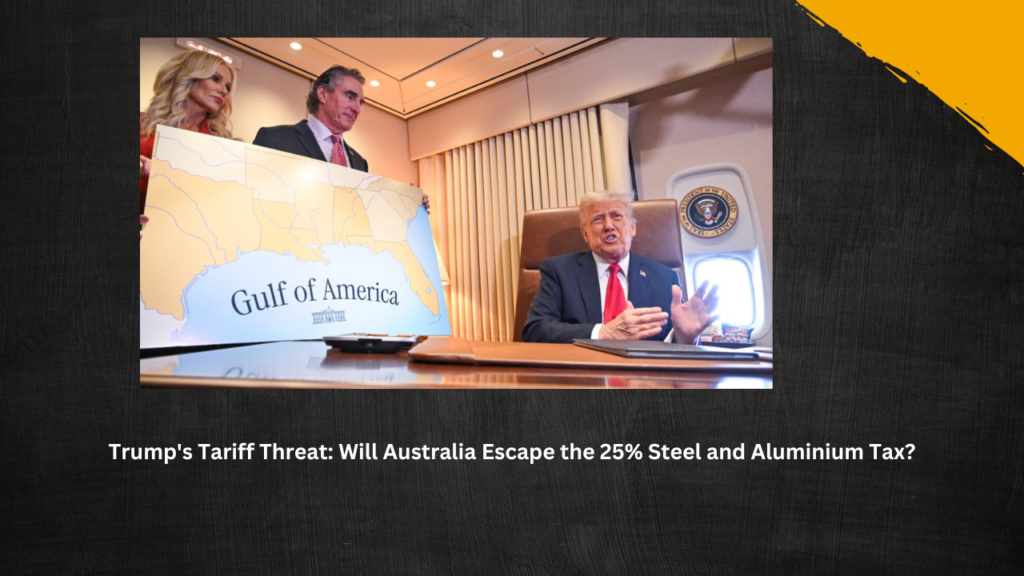
Donald Trump has stated that no nation will be exempt from the 25% tariffs he plans to impose on all steel and aluminium imports to the United States. However, Australia may be an exception. Australian Prime Minister Anthony Albanese has had a phone call with President Trump, urging him to exempt Australia from these tariffs. The primary argument presented is that Australia imports more from the U.S. than it exports to it.
Economist Dr. Susan Stone, who is the Credit Union SA Chair of Economics at the University of South Australia, shared insights on this issue, particularly focusing on how these tariffs might impact the Australian economy.
Trump initially declared that there would be no exemptions for anyone, but when questioned further about Australia, he suggested that the U.S. has a trade surplus with the country, and as a result, could consider granting an exemption.
In terms of trade balance, Australia purchases more from the U.S. than it sells to the U.S., which is considered a surplus for the U.S. This stands in contrast to countries with which the U.S. has a trade deficit, where the U.S. imports more than it exports. Trump’s approach largely focuses on these trade surpluses and deficits, although it doesn’t fully capture the overall picture of trade dynamics.
During the discussions, Trump highlighted that Australia’s demand for aircraft is one of the reasons behind the trade surplus. Albanese, after his call with Trump, was optimistic about the prospect of an exemption. They agreed to publicly state that the U.S. President was considering the idea.
Dr. Stone explained that while Australia is not one of the largest exporters of steel or aluminium to the U.S. from the U.S. perspective, it is still a significant exporter of aluminium, and the U.S. market is a key one for Australia. If the tariffs were to go into effect, it could significantly affect Australian industries, especially since aluminium is one of the top exports to the U.S.
Politicians in the U.S., like Congressman Joe Courtney, have also expressed concern that imposing tariffs on Australian products would be an affront to the Australian people, especially in light of the AUKUS Defence pact, where Australia committed to purchasing U.S. submarines. Dr. Stone believes that Trump’s transactional approach might consider the broader economic relationship between the two countries.
Historically, Australia was able to negotiate a similar issue during the last Trump administration, largely due to the trade surplus between the two nations. Former Prime Minister Malcolm Turnbull warned that Albanese shouldn’t be judged too harshly if Trump doesn’t grant an exemption this time.
Dr. Stone went on to discuss how a 25% tariff on Australian steel and aluminium would have significant domestic consequences. Although Australia doesn’t export large quantities of these metals to the U.S. compared to other countries, the tariffs would still hurt the industry, especially given that these materials are major exports to the U.S. market. Furthermore, if Australia were not granted an exemption while other smaller countries were, it would worsen the situation, as U.S. manufacturers might seek alternative sources.
Other countries, such as the European Union, have indicated that they would retaliate if the tariffs are implemented, which could create global trade uncertainties. This could result in higher costs for consumers and hinder business activities. If the tariffs were imposed, it could also backfire for the U.S., as history suggests that tariffs can result in job losses, particularly in industries like steel.
Although China isn’t directly impacted by the tariffs, the move could shift global trade patterns, which may affect China’s market share in other regions.
Dr. Stone concluded by suggesting that whether Australia can secure an exemption hinges on making a strong economic case. She emphasized that Australia’s steel and aluminium imports are not a significant threat to the U.S. manufacturing sector and that the industries that rely on these imports in the U.S. might lobby for some exemptions to continue receiving them.
Ultimately, it appears that Australia’s fate in this matter will depend on Trump’s unpredictable decision-making style, as he is known for changing his stance.